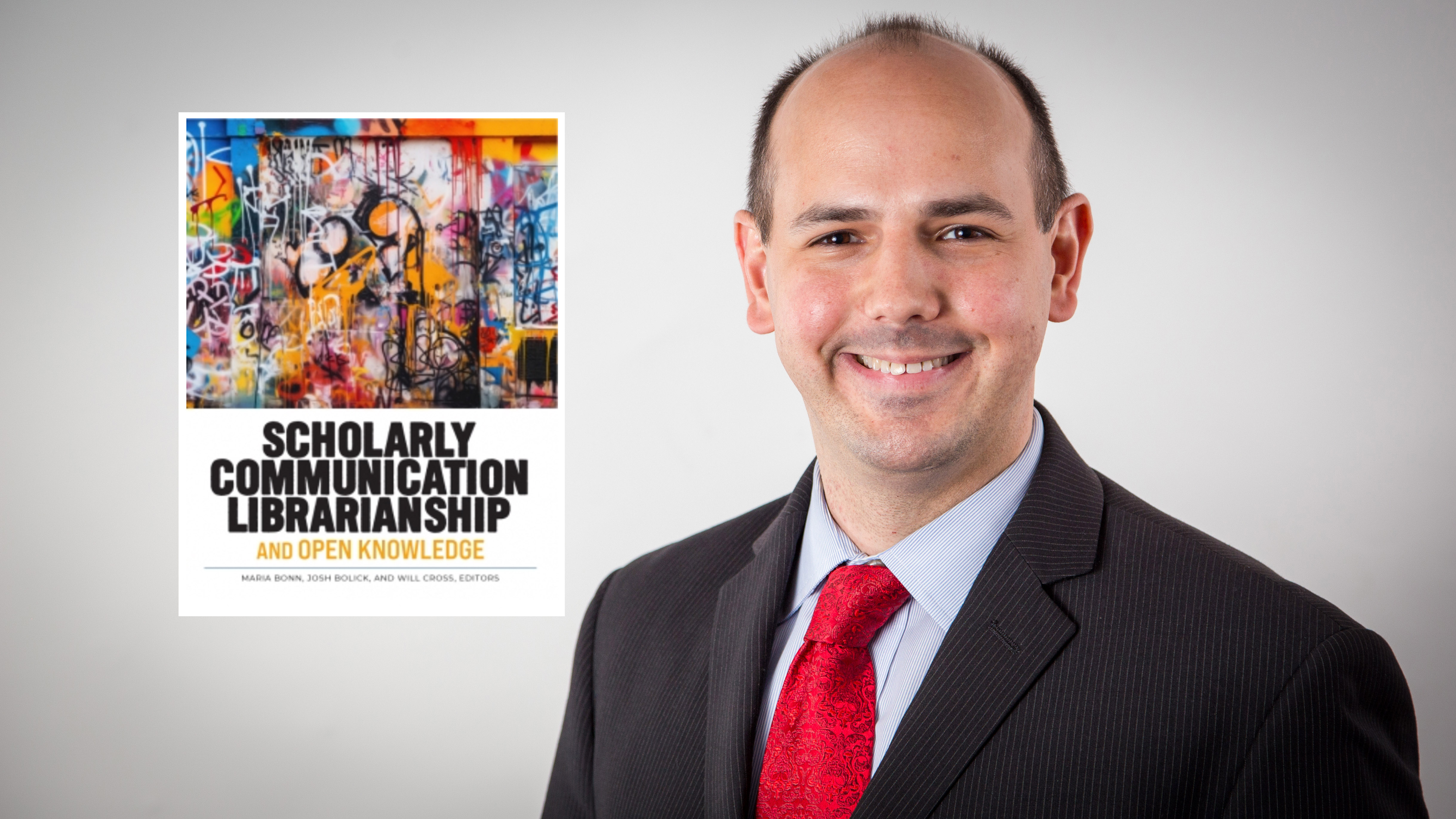
Will Cross co-authors book on Scholarly Communication

Will Cross, Director of the Open Knowledge Center & Head of Information Policy, is a co-editor of a new, openly-licensed introduction to the profession of scholarly communication to be published by ACRL in October. Scholarly Communication Librarianship and Open Knowledge gathers the work of more than 80 contributors including the Libraries’ Susan Ivey and Tisha Mentnech.
Cross’ co-editors are Maria Bonn, Associate Professor and Director of the MS in Library and Information Science program in the School of Information Sciences at the University of Illinois Urbana Champaign, and Josh Bolick, head of the David Shulenburger Office of Scholarly Communication and Copyright at the University of Kansas.
The book was conceived as an open textbook of scholarly communication librarianship and aspires to increase instruction on SC topics in LIS programs. The editors hope that the title serves as a resource for continuing education.
“Although scholarly communication is the fastest-growing area of practice in academic librarianship—and one of the most critical in higher education—there has not been a textbook that introduced practitioners to the core values and best practices in the field,” says Cross. “Scholars, universities, and funders are deeply invested in open access to research, open education to support student success, and open science for a global research enterprise. This book will prepare the next generation of librarians and those they support to create and share knowledge more quickly, openly, and with broader impacts on the world around us.”
The editorial team also created a complement to the book—the Scholarly Communication Notebook (SCN). If the relationship between the book and the SCN isn’t clear, here’s a reflection on that. Articles on the book project have come out from SPARC and ACRL.
“I am tremendously proud of how collaboratively we developed this book,” Cross says. “Because scholarly communication is an emergent field that can look very different in different contexts, we were intentional about including and highlighting a diverse set of voices. We selected four expert guest editors to lead development of sections on open knowledge and held open calls for a section on ‘Voices from the Field.’ We also conducted open peer review, soliciting comments, questions, and feedback from peers around the world.”
The book is available through:


